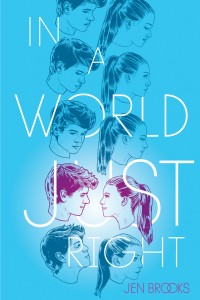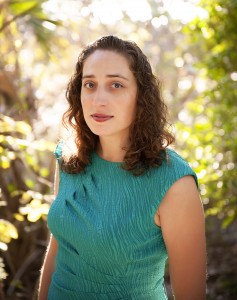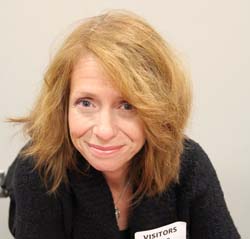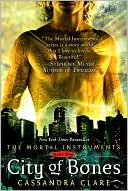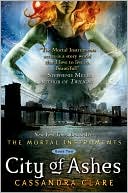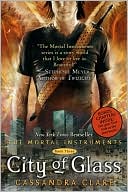writing process
#mywritingprocess blog tour
Ive been tagged by my Freshman Fifteens buddy Kim Savage, author of After The Woods, to participate in the #mywritingprocess blog tour. Her writing process can be found here. As a taggee, Im supposed to answer the following four questions, so here goes:
1) What am I working on?
Well, I just finished the first draft of my second YA book in my contract with Simon & Schuster Books For Young Readers. Tentatively titled Jewelry, its the story of six high school seniors living with the (magical, disturbing) consequences of discovering a jewelry chest in a back yard pond when they were ten years old. Now that the manuscript is in my editors hands for a bit, I have to decide what to work on nexta revision of one of my two earlier manuscripts? Something entirely different? (I actually think I know the answer, but for now its a secret!)
2) How does my work differ from others of its genre?
Im not sure it does differ. That implies most other books in the genre are the same. Todays YA field is wide and complex, with room for genre-blending, experimentation, and a wide range of age-appropriateness. There isnt a formula to be different from, except for the requirement that the protagonist be a young adult. Almost anything goes, and thats one of the reasons I like writing YA so much. My two contracted books are a genre mix of contemporary, fantasy, and romance, and both contain a mysterious element. I also like to believe my stories have a takeaway that makes a reader think even after theyve finished the book, though I certainly am not the first YA author to hope this.
3) Why do I write what I do?
I bet theres a whole psychoanalysis of me that can be done to answer this question. The short answer, though, is that I write what I feel like writing. I chose to be a high school teacher for fourteen years, and now I write for that audience, so I guess I find something fascinating about that time of life. I also love science fiction and fantasy because I feel those genres have the potential to test characters in unusual and meaningful ways.
4) How does my individual writing process work?
Generally something like this: I develop a concept and some characters, like a boy who can create worlds or a group of kids who find a jewelry chest. Then I brainstorm a bit about what could happen in the story and what the ending might be. Then I write. One chapter at a time I let the story unfold for myself, occasionally pausing to think about where Im headed. Its like reading any other book, wondering whats going to happen next. I often have no idea until I write the words. Both of my contracted books ended in a far different place from where I thought they might go, and that process of finding my way through a plot is most of the pleasure of writing for me. Of course, the downside is I find myself having to revise my beginnings quite a bit to match my endings!
Next up: Two writers who have been an integral part of my journey to become a professional writer. Rhonda Mason‘s writing spans the gamut of speculative fiction, from space opera to epic fantasy to urban paranormal and back again. Her space opera trilogy, Empress Game, launches from Titan Books July 2015. Writer/Producer Diana Dru Botsford‘s work runs the gamut from novels to the screen including several Stargate SG-1 novels, the Star Trek TNG episode, “Rascal’s” and the award-winning science fiction webseries “Epilogue.” She most recently contributed to the up-and-coming Stargate short story anthology, “Far Horizons,” due from Fandemonium this fall.
Speak up:
1 comment| TAGS:
critique partners, Diana Dru Botsford, Kim Savage, Rhonda Mason, writing process, YAWriting what you read?
Now that year’s end has me reviewing my list of books read in 2011, I’m counting all my excuses for not reading more than I wanted. Left to my own devices, I’m confident I would join the 100+ club for the year, but alas . . .
Graduate school is one excuse, since I spent the first six months finishing an MFA. (Of course part of that degree actually required me to read books, so that excuse is a little thin.) There is my young son, who goes to bed late at night, so I don’t often get to read in bed before sleep. My biggest excuse, though, is that I spent more time writing than in any previous year.
Writing and reading go hand in hand for a lot of writers, but for me this isn’t the case. My writing is affected by the style and content of what I read, so if I’m looking for inspiration, for encouragement, for a jump start, nothing is better than reading a good book. (I’ve noted in a previous entry that Graceling and Thirteen Reasons Why recently turned out to be good choices for me.) Once I’m on a roll writing, though, I find that reading interferes with my writing. It inhibits my voice and ideas because my head becomes filled with somebody else’s voice and ideas.
This is not to say I don’t read at all when I write. It means that certain parts of the writing process make me hesitant to read. Brainstorming, outlining, and revising are great times for me to be reading good fiction. When I’m actually producing pages, though, it’s better for me to abstain from reading or to read something non-fiction. Today I started a non-fiction book on medieval England.
How are reading and writing related for you? Do you find it hard to read while working on your own piece? Do you find certain books help you along?
Speak up:
comment| TAGS:
excuses, Graceling, Thirteen Reasons Why, writing processA page a day
You know how sometimes you have to learn certain lessons for yourself? No matter how many times the advice is given to you previously?
I’m spending less time on this blog the last few weeks because I’ve been using all my word count in my work in progress. It’s kinda like NaNoWriMo, only it takes me longer than a month. Since September 22nd, I’ve completed 50,000 words of a projected 90,000-word story, most of which has gotten done between last month and this. I truly hope to be finished with the first draft by the end of January.
My first novel took me something like six years to write. The second took another five. Both required help from graduate school structure, mentors, and critique partners.
While my second novel goes through the process of finding an agent for representation, I’ve started manuscript #3. But my writing process is totally different.
I used to have to “warm up,” so to speak, before I could write. I had to clear my email and check certain other sites and generally procrastinate before I felt ready to write. (I recall more than one game of spider solitaire being a part of this process.) Once I was warmed up, if I didn’t have at least two hours or more ahead of me, I got frustrated and blocked and couldn’t write. I used to think if I didn’t complete a major chunk (a chapter or two) in a writing session that it wasn’t even worth my time to sit down and write.
Not so anymore. I wake up early every weekday morning and most weekends with the goal of getting a page done, even if it is a page of total crap that needs to be rewritten the next day. For the first month or two, a page is all I accomplished, and it seemed like such a paltry thing, but it was enough. Lately I rarely leave the computer without at least 1,000 words complete, and usually much more.
I think by forcing myself to get out a page, I forced myself to plot. My difficulty writing had always been that I just didn’t know what should come next. When I forced myself to write a little something every day, I forced something to come next. And that lead to another next and another next and another next.
During my time at SHU I was told that if I wrote a page a day for 365 days, I’d have a novel. (I’m sure this advice should be attributed to someone specific, but I remember it as advice that was simply passed around.) A year sounded like such a short time compared to the five or six it took to do each of my first two manuscripts. Finally following that advice has led to me getting a manuscript done (well, not yet, but I’m on track and confident) in six months.
My advice? Get your butt in the chair and dive “write” in! A page a day is all it takes!
Speak up:
2 comments| TAGS:
one page, Seton Hill University, Writing Popular Fiction program, writing processThe trilogy wait
A couple of weeks ago I finished reading Cassandra Clare’s first trilogy in The Mortal Instruments world: City of Bones, City of Ashes, City of Glass. This is a YA fantasy series I had heard good things about, and I wasnt disappointed.
The thing is there is a second trilogy taking up where the first left off. The first book of the new trilogy has already been released, the second will be out in May of next year, and the third presumably sometime after that. (Clare is also in the middle of a prequel trilogy.) I was pretty satisfied by the first trilogys ending, and I really am not a very patient person when it comes to story. If the sequel trilogy were out in its entirety now, I would read it, but since it isnt, I wont. I don t like being left hanging.
Of course this is no ones problem but my own. I understand the reasons why trilogies/series are not written to completion before being published in parts.
Still, the Mortal Instruments experience reminds me of reading Dan Simmonss Hyperion, which for some reason I didnt know had three more books before the conclusion. Luckily all four books had been published when I read the first one, so I bought the others and saw the story to its end without delay.
I discovered Philip Pullmans His Dark Materials trilogy during the release of the second book, The Subtle Knife. I had to waitimpatientlyto read The Amber Spyglass. It was a long, but totally worthwhile, wait.
And then there were the years where Battlestar Galactica (the new one) and Lost were on TV. I remember that period as being a pretty rich one in my life for consuming story.
Of course this Star Wars fan had a really hard time waiting for George Lucas to finish his saga.
Do I even have to mention Harry Potter?
My point is more than a confessed dislike of delayed endings. Besides just being driven mad by the wait, I come up with my own ideas and speculations about what should happen. The more time I wait, the more speculation. A writer who can produce something even better than I imagined is the writer whose story I recommend to everyone I know. In many ways, this puts a heavy burden on a writer to outsmart all those people who, like me, will love the world theyve been introduced to and love to speculate within it.
Ive been very pleased with some of the endings Ive waited for. Not pleased with others. And I cant help but wonder if my reaction would have been different, in either direction, had I been able to experience the whole story without waiting.
As a writer of YA fantasy and science fiction, I feel the pressure to trilogize/serialize. This scares me because I dont know that I can write a final chapter better than the composite masterpiece of all my waiting readers.
Speak up:
7 comments| TAGS:
Battlestar Galactica, City of Ashes, City of Bones, City of Glass, Dan Simmons, Harry Potter, His Dark Materials, Hyperion, Lost, Mortal Instruments, Philip Pullman, series, Star Wars, trilogy, waiting, writing processCrank it out
The reason most people fail instead of succeed is that they trade what they want most for what they want at the moment.
I’ve tried to find this quotation’s author so I can give proper attribution, but my attempts on the internet keep coming up “unknown.” I first heard these words when the boys track team where I used to coach had it put on the backs of their long-sleeve T-shirts. Shortly thereafter, the girls team had their own shirts made with the same quote. So many years later, I still have these shirts the teams gave me.
It’s obvious how this quote relates to track and field. When you’re competing, or when you’re working out, or when you’re supposed to be working out, there are so many temptations to slack off, give up, or simply doubt yourself. Athletes who work through these temptations tend to find greater success. I would think it’s obvious this quote also relates to pretty much anything else in life. If you want something badly enough, you have to work at it no matter how you’re tempted to slack off in the now. You must always remind yourself of why you’re working.
In my case, my goal is to be a professional writer. Over the course of my writing my first manuscript, I wasn’t sure of this goal. I didn’t need the motivation of a potential writing career because I was writing to get a masters degree, and I had a built-in structure of deadlines through my graduate program. I began my second manuscript after graduation, and I was doing pretty well until I hit a major life-hurdle and stopped writing altogether. Returning to grad school for another degree helped me get that manuscript done.
But somehow things are different for my third. It’s partly simple maturity, but I’ve also finally come to the conclusion I want to be a writer.
It used to be that the stars would have to align, the earth had to fall silent, and several muses needed to be singing in order for me to write. I required huge chunks of hours at a time because it took forever for me to warm up to write and then struggle through plotting. It wasn’t worth my effort to start a writing session that didn’t result in one or more complete chapters.
Now, with a little one in my care, this is impossible. It was close to impossible before, which is why I took a very long time to finish my first two manuscripts. Somewhere along the way someone told me if I wrote a page a day for year, I’d have a manuscript. This made sense, but I just couldn’t do it.
In the last month or so, I’ve been getting up extra early every weekday to write. Some days I only do crank out one pagebut this is the goal. Some days I write a page of notes, either of ideas or research. Many days I get more than one page done. This is working for me, but the trick is that I don’t give in to the million other easier things I could be doing at the computer (or to sleeping in). I save those for the reward when my page is done.
I know that I’m capable of getting more words done in a day, but for now it’s still a little hard with the toddler pulling me away to “go play marbles” every three seconds. I’ve always done my best work under pressure, and I hope someday soon to sign with an agent and begin the deadline process with a publisher.
Do you have any special ways you’ve tackled the temptation to give up what you want most for what you want at the moment?
